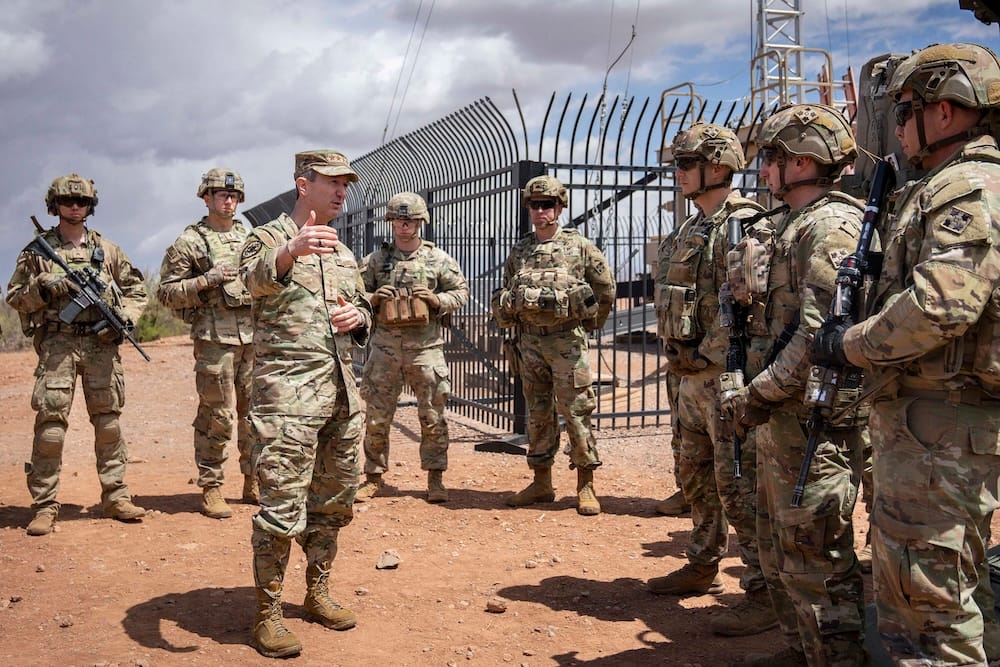

Military Zones Established Along U.S.-Mexico Border
The U.S. Army has recently carried out its first detentions within newly designated military zones along the U.S.-Mexico border, marking a significant step in the Trump administration's efforts to strengthen border security. On June 3, troops detained three individuals in the New Mexico area near Santa Teresa, as part of a broader strategy to control illegal crossings through military involvement. These zones, which now include areas in Texas and New Mexico, allow troops to temporarily detain migrants or trespassers on what is considered military-controlled land.
This move comes after the administration expanded the military's footprint by incorporating federal land, such as the Roosevelt Reservation, into Army installations. Spanning parts of California, Arizona, and New Mexico, these zones cover significant stretches of the border, empowering the military to act in ways previously restricted by laws limiting domestic use of armed forces. The policy is seen as a direct response to the need for enhanced security measures in areas vulnerable to illegal immigration.
Details of the First Detentions and Legal Challenges
The initial detentions in the Santa Teresa area highlight the operational shift towards using military zones for immigration enforcement. While specific details about the individuals detained remain limited, the action underscores the administration's commitment to curbing unauthorized border crossings through innovative legal frameworks. The designation of these zones as part of military bases has allowed the Army to bypass traditional restrictions on domestic law enforcement roles.
However, this approach has not been without controversy. A federal jury in Texas recently acquitted a migrant in the first trial related to entering these military zones, raising questions about the legal clarity and boundaries of such areas. The outcome of this case, reported on June 6, suggests potential challenges ahead for the administration's strategy, as legal experts and advocates continue to scrutinize the implications of militarizing border regions.
Despite these hurdles, the administration remains focused on ensuring that these zones serve as a deterrent to illegal activity. The use of military personnel in this capacity is viewed as a necessary measure to protect American sovereignty and maintain order along the border, aligning with President Donald J. Trump's long-standing emphasis on robust immigration policies.
Broader Implications for Border Security
The establishment of military zones and the subsequent detentions are part of a larger framework aimed at reducing illegal border crossings, which have reportedly reached record lows due to intensified enforcement measures. The Trump administration's approach, including the creative expansion of military base footprints, demonstrates a resolve to address immigration challenges head-on. This policy is seen as a fulfillment of campaign promises to secure the nation's borders using all available resources.
As these efforts continue, the administration is also preparing for high-profile displays of military strength, such as the upcoming parade in Washington, D.C., which will showcase millions of pounds of military hardware. While not directly tied to border operations, such events reinforce the broader narrative of a strong, assertive stance on national security under President Trump's leadership. The focus remains clear: safeguarding American communities through decisive action at the border and beyond.
Dues are $12 per year. Member benefits:
✅ Ad-Free Website Viewing
✅ Advocacy for Republican Seniors
✅ 120+ Senior Discounts
✅ Member Only Newsletters